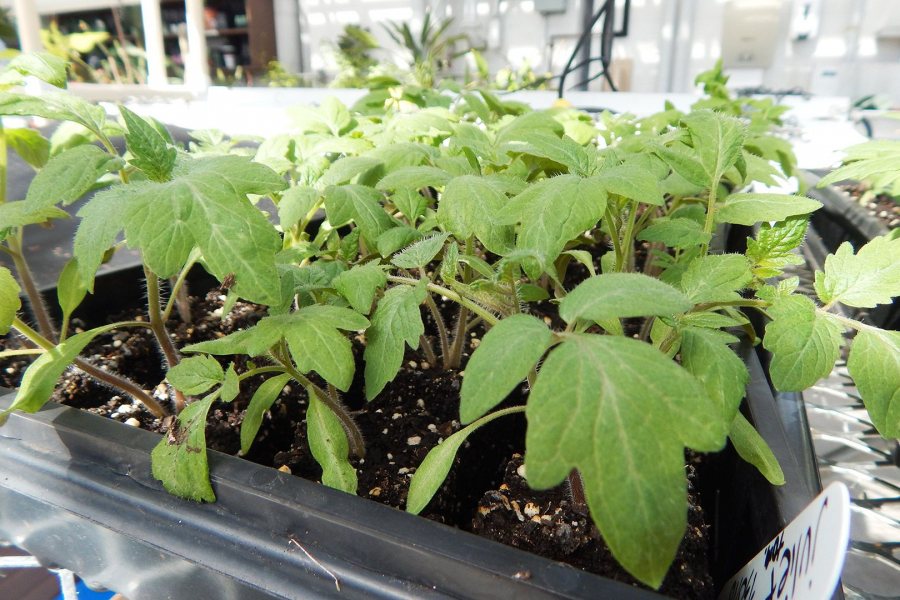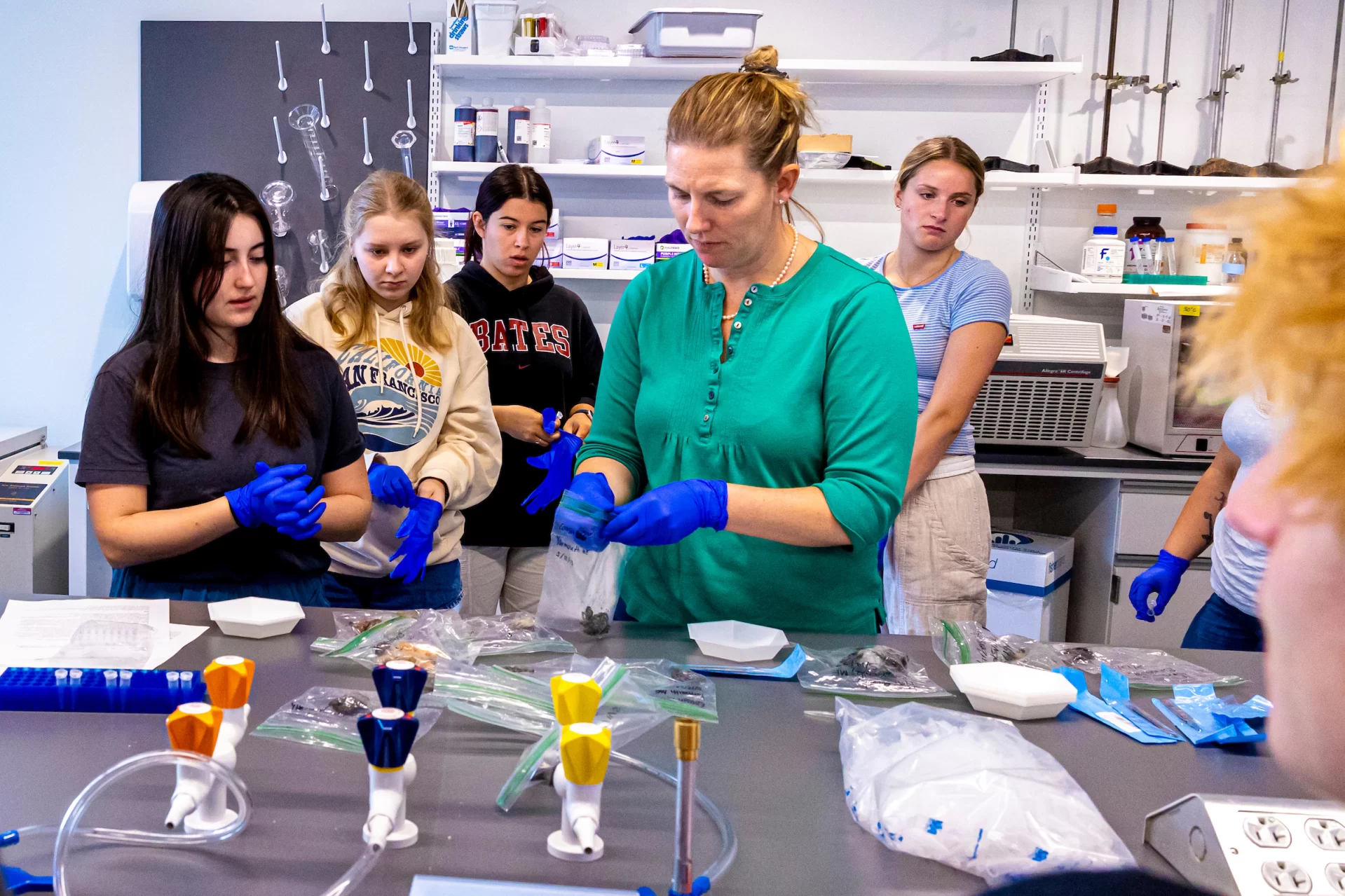
Tomato varieties in the Bates Garden, 2018

“Juliet” tomato seedlings: “There will be no lack of Romeos who want to nibble on these.” (Doug Hubley/Bates College)
When we learned that tomatoes would be one of the Big Three crops in the new Bates Garden, along with cucumbers and summer squash, we had to know: What varieties?
Tomato varieties are to gardeners as stats are to baseball fans. There are a million of them, we all have our favorites, and those favorites speak intimately to us of things that the uninitiated can’t quite comprehend.
Each variety has its story — witness “Mortgage Lifter,” a tomato so popular that its West Virginian breeder paid off his mortgage with the proceeds. Each represents a bedrock life value for the gardener. Each tastes better than the next, to the extent that every text about tomatoes has to include “I stood ecstatically in the garden with tomato juice running down my chin.” (See? It’s just that easy).
As Maine gardeners writing for a Maine college, we thought it only fair that we turn to Maine seed companies for descriptions of the Bates Garden’s tomato roster. Let’s see what Johnny’s Selected Seeds, Pine Tree Garden Seeds, and Fedco Seeds — where the Bates gardeners bought their tomato seed — have to say.
Sun Gold Cherry
Intense fruity flavor. Exceptionally sweet, bright tangerine-orange cherry tomatoes leave customers begging for more. Vigorous plants start yielding early and bear right through the season. Tendency to split precludes shipping, making these an exclusively fresh-market treat. The taste can’t be beat. 15-20 gm. fruits. High resistance to fusarium wilt and tobacco mosaic virus. Indeterminate. — Johnny’s Selected Seeds
Black Cherry
Indeterminate. Long vines are covered with distinctive, very dark purple fruit. You get the exceptional flavor of a Brandywine [a beloved heirloom variety] in a cherry tomato.— Pinetree Garden Seeds
Opalka Paste Tomato
Open-pollinated. Indeterminate. Its third time in our taste test proved the charm for Opalka. Our tasters have commented, “an oasis of flavor in a desert of tomato hell,” “a pleasing texture and good aftertaste lingers,” “round and mellow flavor…full-bodied.” Expect copious yields of 3×5″ massive solid bull’s horn–shaped red fruits with dry texture and few seeds. Also dries well. While some tomatoes falter during hot dry spells, Opalka produces consistently. The crinkly foliage is normal and not an indication of plant disease. Polish heirloom brought by the Opalka family to Amsterdam, N.Y., around 1900. A shy seed producer, it consistently gets dropped for that reason by commercial enterprises, so we’re happy to be able to offer it once again, grown by our very own Roberta Bailey. — Fedco Seeds
Pruden’s
Open-pollinated. Indeterminate. We continue to dispute whether Pruden’s is superior to Brandywine, but, opinions aside, Pruden’s is early for its size and makes a great sandwich tomato. We are back to our customary potato-leaved strain that bears irregular pink 1-pound fruit with very few seeds, a silken texture and rich tomato taste, nicely tart with a balanced undertone of sweetness neither insipid nor cloying. Brett Grohsgal praises its flavor, productivity and disease resistance. — Fedco Seeds
Juliet
F-1 hybrid. Indeterminate. There will be no lack of Romeos who want to nibble on these and no lack of the delectable little plum-shaped fruits for them to adore. They come in clusters everywhere, each truss bearing 6–8 of the 1–2 oz. grapes for an astonishing total of 50–80 glossy red fruits per plant. With an engaging sweetness, they make good stewing tomatoes, excellent salad tomatoes, and, despite their juiciness, a tangy sauce with a diverse complex richness and full sweet tomato flavor. . . . Scout Proft of East Dorset, Vt., says, “Entertained by your description, but the plain truth is they are the highest-yielding, most versatile tomato out there — both for greenhouse and field use in all culinary ways. Period.” This 1999 AAS winner is firm enough to hold on the vines for up to two weeks, crack resistant, tolerant to EB and LB, and fairly invulnerable to insect or slug damage. — Fedco Seeds




